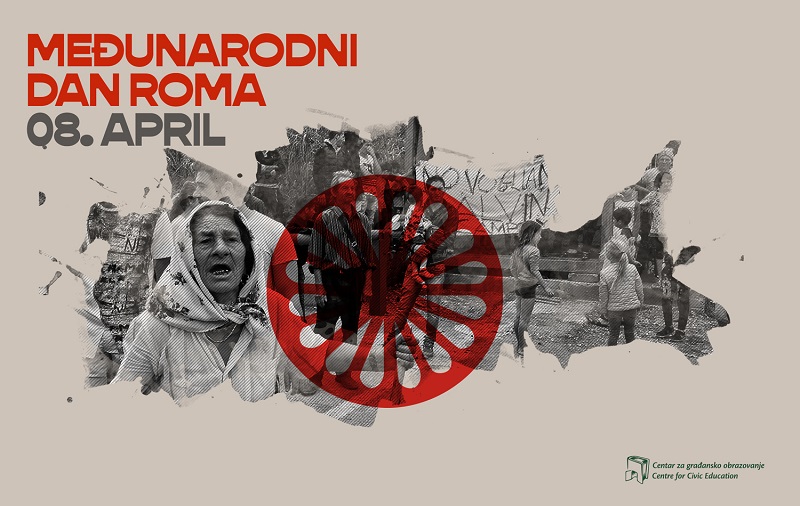On the occasion of 8 April – International Roma Day, the Centre for Civic Education (CCE) points to the need for urgent aid to the Roma population during novel coronavirus pandemic, given that discrimination and marginalization make this social group particularly vulnerable.
The Roma are the poorest and most vulnerable population in Montenegro, and reproduction of generational poverty and insufficiently functional systematic approach in providing access to education, health and social services, as well as employment, are reinforcing this vicious circle, as indicated by numerous studies. According to the most recent CCE survey on the perception of discrimination, Montenegrin citizens deem that the Roma people are the most exposed to discrimination. Given that, in the same survey, poverty is highly positioned holding on the list of features perceived as an obstacle to equal approach, it is clear that Roma, who mostly live in poverty, face multiple discrimination.
The European Commission in its 2019 Montenegro Report recommends intensifying efforts in addressing the issue of forced child marriages and child begging, which affect the Roma community, and emphasizes the need to establish sustainable and effective services accessible to the Roma.
The lack of necessary documentation and access to health services remain a challenge for members of the Roma community due to the lack of medical care cards.
The latest US Department of State’s Country report on Human Rights Practices in Montenegro notes housing in illegal and inadequate settlements as one of its priority problems.
Although limited progress has been recorded in the area of education, broader support and a range of different approaches by different actors in the country is necessary in order for the Roma to place their education on the list of priorities, which is difficult to get on the agenda in conditions of poverty and social exclusion.
In recent days, Roma population has been in focus, as one Roma settlement was closed when a case of coronavirus was registered. Institutions are obliged to do their utmost to ensure that the population of Vrela Ribnicka have all the conditions in order to respect the rules of self-isolation and thus to protect their own and the health of others in society. However, this should be a warning to institutions that other Roma settlements should be in focus and that these households should be provided with sufficient quantities of hygiene packages and food to survive this difficult period and stay healthy, as previously indicated by Roma and human rights organizations.
Maja Marinovic, Project Associate

